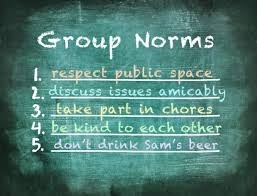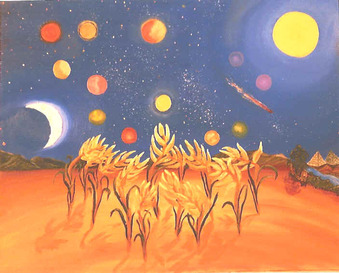|
Exodus 19:3 Then Moses went up to God; the Lord called to him from the mountain, saying, "Thus you shall say to the house of Jacob, and tell the Israelites: 4 You have seen what I did to the Egyptians, and how I bore you on eagles' wings and brought you to myself. 5 Now therefore, if you obey my voice and keep my covenant, you shall be my treasured possession out of all the peoples. Indeed, the whole earth is mine, 6 but you shall be for me a priestly kingdom and a holy nation. These are the words that you shall speak to the Israelites." 7 So Moses came, summoned the elders of the people, and set before them all these words that the Lord had commanded him. 20:1 Then God spoke all these words: 2 I am the Lord your God, who brought you out of the land of Egypt, out of the house of slavery; 3 you shall have no other gods before me. 4 You shall not make for yourself an idol, whether in the form of anything that is in heaven above, or that is on the earth beneath, or that is in the water under the earth. 5 You shall not bow down to them or worship them; for I the Lord your God am a jealous God, punishing children for the iniquity of parents, to the third and the fourth generation of those who reject me, 6 but showing steadfast love to the thousandth generation of those who love me and keep my commandments. 7 You shall not make wrongful use of the name of the Lord your God, for the Lord will not acquit anyone who misuses his name. 8 Remember the sabbath day, and keep it holy. 9 Six days you shall labor and do all your work. 10 But the seventh day is a sabbath to the Lord your God; you shall not do any work—you, your son or your daughter, your male or female slave, your livestock, or the alien resident in your towns. 11 For in six days the Lord made heaven and earth, the sea, and all that is in them, but rested the seventh day; therefore the Lord blessed the sabbath day and consecrated it. 12 Honor your father and your mother, so that your days may be long in the land that the Lord your God is giving you. 13 You shall not murder. 14 You shall not commit adultery. 15 You shall not steal. 16 You shall not bear false witness against your neighbor. 17 You shall not covet your neighbor's house; you shall not covet your neighbor's wife, or male or female slave, or ox, or donkey, or anything that belongs to your neighbor.  Are you familiar with Tuckman's stages of group development? "Teams go through stages of development. The most commonly used framework for a team's stages of development was developed in the mid-1960s by Bruce W. Tuckman, now a psychology professor at Ohio State University. Although many authors have written variations and enhancements to Tuckman's work, his descriptions of Forming, Storming, Norming and Performing provide a useful framework for looking at your own team." I hear the 10 commandments as the "norming" phase of group development. The people are formed as slaves in Egypt. They have stormed their way out of slavery and over the sea. It is time for them to "norm." If they are to be a blessing, as Abraham's promise has indicated, they must continue their development as a group so that they can move into the final phase, performing. And honestly, these "norms" are fairly universal. Besides the first four that are particular to their relationship with the LORD, these guidelines provide a safe environment in which the people can settle. As simple as this take might be, what are the norms of your community of faith? I'm in the process of writing a letter to my congregation. They are a recently merged congregation. They have been in the process of "storming" for the last year. It is time to determine what our "norms" will be. Like I said, I'm still in the process of writing the letter but some of the main sections so far are:
And if I take cues from this text, I would include a section about:
This list is much more rich than mine. Honestly, wouldn't our communities of faith be more stable if our allegiance to God came first? Wouldn't we have all the volunteers we need if we got rid of the idols that keep us too busy to be together? How would we be different if we were rested? And if we stopped gossiping, or if we didn't covet one another - our cars, homes, gadgets, jobs - what kind of community might we become? I truly believe community life is better than an isolated life. But community life is hard. I often call it "advanced citizenship." You have to want to live in community because it doesn't come naturally; we have to work at community. And important part of working at it is living by norms.
1 Comment
As Pharaoh drew near, the Israelites looked back, and there were the Egyptians advancing on them. In great fear the Israelites cried out to the Lord. They said to Moses, ‘Was it because there were no graves in Egypt that you have taken us away to die in the wilderness? What have you done to us, bringing us out of Egypt? Is this not the very thing we told you in Egypt, “Let us alone and let us serve the Egyptians”? For it would have been better for us to serve the Egyptians than to die in the wilderness.’ But Moses said to the people, ‘Do not be afraid, stand firm, and see the deliverance that the Lord will accomplish for you today; for the Egyptians whom you see today you shall never see again. The Lord will fight for you, and you have only to keep still.’ Then the Lord said to Moses, ‘Why do you cry out to me? Tell the Israelites to go forward. But you lift up your staff, and stretch out your hand over the sea and divide it, that the Israelites may go into the sea on dry ground. Then I will harden the hearts of the Egyptians so that they will go in after them; and so I will gain glory for myself over Pharaoh and all his army, his chariots, and his chariot drivers. And the Egyptians shall know that I am the Lord, when I have gained glory for myself over Pharaoh, his chariots, and his chariot drivers.’  "The Egyptians who you see today, you will never see again." Not only will the Hebrew people be free from slavery, they will never have to face their oppressors again. Never see them on the way to the market. Never deal with them at PTA meetings. Never hear of them in the news. Never have them move into their new neighborhood in the promised land. The liberated people of God never have to see their oppressors again. My husband and I have embarked on some radical life changes lately. After a summer spent recovering from major surgery, I realized that I no longer want to be enslaved to sugar. Is slavery to sugar the same thing as slavery to the Egyptians. Of course not; it's not the same thing. But slavery is slavery. And the primary story of the scriptures is nothing if not a story of a liberating God and a liberated people. And if I can underline my point once more, I turn to the apostle Paul who says it is for freedom that Christ set us free. (Galatians 5:1) Freedom, liberation, salvation - this is what our story is all about. And so back to my sugar addiction. I asked my husband if he wouldn't try (once again) to rid our diet of things that I believe are not adding to our health, physical and mental and perhaps spiritual too. Starting August 3, we systematically went off sugar, gluten, dairy and caffeine. By August 18, all of those products were out of our house. We haven't eaten processed food since then. I have spent close to 2 hours in the kitchen each day preparing, cooking and cleaning. My first complaint was that I was used to thinking about dinner but now I had to think about breakfast and lunch too. It takes a lot of work to be healthy. The other thing it takes is to not see the unhealthy things we can't eat. There are a few foods that aren't necessarily bad for me that I still do not let in the house. Why? Because if I purchased peanut butter, I may cuddle with it and a spoon while I watch tv at night. I don't buy gluten free cookies or other snacks from the gluten free aisle because I don't want to eat it. If I have it in the house, I will eat it. Instead I have fruit. I have coconut milk for smoothies. I've learned how to make pudding with chia seeds. And because I can name for you my go to food for when I simply must eat something, I am reminded that I am still quite enslaved to food. Yes, I used the word enslaved. Addiction is slavery. Addiction to anything, alcohol, drugs, attention, facebook, my smartphone, food and work. Addiction is slavery. And this foundational story from the scriptures reveals to us God's ultimate hope for us - liberation. The people were not partially liberated. They were wholly liberated - so that they would never see their oppressors again. When the oppressor is completely gone from the picture, then the oppressed are no longer running away from slavery. When the oppressor is no longer in the review mirror, the liberated are free to live. Now Joseph was taken down to Egypt, and Potiphar, an officer of Pharaoh, the captain of the guard, an Egyptian, bought him from the Ishmaelites who had brought him down there. The Lord was with Joseph, and he became a successful man; he was in the house of his Egyptian master. His master saw that the Lord was with him, and that the Lord caused all that he did to prosper in his hands. So Joseph found favour in his sight and attended him; he made him overseer of his house and put him in charge of all that he had. From the time that he made him overseer in his house and over all that he had, the Lord blessed the Egyptian’s house for Joseph’s sake; the blessing of the Lord was on all that he had, in house and field. So he left all that he had in Joseph’s charge; and, with him there, he had no concern for anything but the food that he ate.Now Joseph was handsome and good-looking. And after a time his master’s wife cast her eyes on Joseph and said, ‘Lie with me.’ But he refused and said to his master’s wife, ‘Look, with me here, my master has no concern about anything in the house, and he has put everything that he has in my hand. He is not greater in this house than I am, nor has he kept back anything from me except yourself, because you are his wife. How then could I do this great wickedness, and sin against God?’ And although she spoke to Joseph day after day, he would not consent to lie beside her or to be with her. One day, however, when he went into the house to do his work, and while no one else was in the house, she caught hold of his garment, saying, ‘Lie with me!’ But he left his garment in her hand, and fled and ran outside. When she saw that he had left his garment in her hand and had fled outside, she called out to the members of her household and said to them, ‘See, my husband has brought among us a Hebrew to insult us! He came in to me to lie with me, and I cried out with a loud voice; and when he heard me raise my voice and cry out, he left his garment beside me, and fled outside.’ Then she kept his garment by her until his master came home, and she told him the same story, saying, ‘The Hebrew servant, whom you have brought among us, came in to me to insult me; but as soon as I raised my voice and cried out, he left his garment beside me, and fled outside.’  Joseph's Dreams Joseph's Dreams Everything Joseph did prospered. And yet I can't imagine it felt that way to Joseph. After all, his brothers kidnapped him and threw him in a pit. They sold him into slavery. He's living as a slave in Potiphar's house. How is that flourishing? Rejected and abused by his family. Alone and enslaved in a foreign land. Potiphar trusts Joseph and rewards him with more responsibility. Trust plus responsibility equals more work. More work equals prosperity? Again, I can't imagine that Joseph was interpreting his life as prosperous. And if he was, he was quickly brought back to reality when Potiphar's wife calls him "this servant." He is wrongfully accused of sexual abuse and thrown in prison where the Lord was with Joseph, showing him favor and again "making all that he did prosper." Did Joseph consider his life prosperous? The 11th son of a woman who has since died giving birth to his baby brother. The favorite son of his father, loathed by his 10 older brothers. Joseph could be understood as a bit of a brat, certainly someone who lacks social cues perhaps. Was Joseph entitled? Was he expecting that Potiphar like his father would favor him above the other servants? Did Joseph believe the dreams of the previous chapter? Did he believe that one day others would bow down to him? Did he hold onto it? Maybe he was somehow able to see his daily life through the lens of those dreams. Or maybe it was simply having the dreams in the first place that caused Joseph to be prosperous. It's interesting - this third week in the narrative lectionary - Noah had a promise. Abram had a promise. Joseph had a dream. Genesis 12:1-9 ~ Now the Lord said to Abram, ‘Go from your country and your kindred and your father’s house to the land that I will show you. I will make of you a great nation, and I will bless you, and make your name great, so that you will be a blessing. I will bless those who bless you, and the one who curses you I will curse; and in you all the families of the earth shall be blessed.’ So Abram went, as the Lord had told him; and Lot went with him. Abram was seventy-five years old when he departed from Haran. Abram took his wife Sarai and his brother’s son Lot, and all the possessions that they had gathered, and the persons whom they had acquired in Haran; and they set forth to go to the land of Canaan. When they had come to the land of Canaan, Abram passed through the land to the place at Shechem, to the oak of Moreh. At that time the Canaanites were in the land. Then the Lord appeared to Abram, and said, ‘To your offspring I will give this land.’ So he built there an altar to the Lord, who had appeared to him. From there he moved on to the hill country on the east of Bethel, and pitched his tent, with Bethel on the west and Ai on the east; and there he built an altar to the Lord and invoked the name of the Lord. And Abram journeyed on by stages towards the Negeb.  We have what I cynically call the "device altar" in the corner of our home office. You've seen them I'm sure, a special box usually covered in leather or a faux suede that holds the many chargers we need for our various devices. The box has a hidden space for a power cord that hosts four electrical outlets There are four holes in the top of the box where the wires from our chargers can connect but hide the cluttery wires. Each night, the devices go to bed on the "device altar" until the next day when they are charged and ready to serve us again. Do you have one of them? In almost every nail spa I know, there is an altar to Buddha, usually near the cash register. Around the figurine of the Buddha, there is flowers and fruit and coins. Living in the interfaith world of central Jersey, I respond to these altars by pausing and recognizing the beauty of the Buddhist philosophy. An altar in Buddhism is quite different than an altar for Christianity. It is not about the Buddha outside of us, the one who lived long ago. The altar is about the Buddha within us. We are in the process of designing a new sanctuary and the architect keeps writing the word "altar" on the communion table. I'm a firm believer in picking my battles and with the myriad issues around designing and building a new sanctuary, making a big deal out the calling the table an altar seemed to be one battle I did not want to begin. However, I eventually found a way to lovingly add it in conversation. As Presbyterians we don't have altars. We have a communion table. Altars are used for sacrifice. The Roman church has an altar, I explained, because on Sunday there is mass, a sacrifice is made. Our table isn't the same. Now, do I care that the architectural plans say "altar?" No, not at all. And to be honest, I'm wondering what we have lost by ridding ourselves of the "altar." Abraham built two altars in this short text. Both times the altars served as part of the ritual, first for recognizing God's revelation and second for invoking the name of the Lord. The act of building an altar takes time. Abraham stopped to build an altar - stopped his journey, changed his pace, interrupted his flow - to recognize God and to interact with God. As Christians without a specific altar, how do we stop our journey? When do we change our pace? What do we do that might interrupt our flow? 6:16 Make a roof for the ark, and finish it to a cubit above; and put the door of the ark in its side; make it with lower, second, and third decks. 17 For my part, I am going to bring a flood of waters on the earth, to destroy from under heaven all flesh in which is the breath of life; everything that is on the earth shall die. 18 But I will establish my covenant with you; and you shall come into the ark, you, your sons, your wife, and your sons' wives with you. 19 And of every living thing, of all flesh, you shall bring two of every kind into the ark, to keep them alive with you; they shall be male and female. 20 Of the birds according to their kinds, and of the animals according to their kinds, of every creeping thing of the ground according to its kind, two of every kind shall come in to you, to keep them alive. 21 Also take with you every kind of food that is eaten, and store it up; and it shall serve as food for you and for them." 22 Noah did this; he did all that God commanded him. 9:8 Then God said to Noah and to his sons with him, 9 "As for me, I am establishing my covenant with you and your descendants after you, 10 and with every living creature that is with you, the birds, the domestic animals, and every animal of the earth with you, as many as came out of the ark. 11 I establish my covenant with you, that never again shall all flesh be cut off by the waters of a flood, and never again shall there be a flood to destroy the earth." 12 God said, "This is the sign of the covenant that I make between me and you and every living creature that is with you, for all future generations: 13 I have set my bow in the clouds, and it shall be a sign of the covenant between me and the earth. 14 When I bring clouds over the earth and the bow is seen in the clouds, 15 I will remember my covenant that is between me and you and every living creature of all flesh; and the waters shall never again become a flood to destroy all flesh.  Wall at the United Nations Wall at the United Nations And so it begins... The narrative lectionary cycle begins this week with the story of Noah. (For those of you following the lectionary, I've sorted out some "chapters" for the year. You can find it here.) Not the whole story but the pieces that indicate God's promise both to destroy and then never to destroy in this manner again. The sign of this covenant is the rainbow in the sky. Now, we understand that a rainbow is the refraction of the sunlight amidst water. But Noah saw this colorful bow in the sky and God gave it meaning for Noah. Remember that Noah, upon hearing this new covenant, decided to plant a vineyard. And as soon as it yielded, he got good and drunk. I've always thought this a reasonable response to the amount of destruction Noah witnessed. And if I were honest, I would almost rather preach about the destruction and chaos in the world. I'd like to hold Noah up to the light and see how our colors are seen in Noah just as God's colors are seen in the rainbow. All of the colors of the rainbow. Was this rainbow truly a sign of promise to Noah? When he saw the rainbow did he see the promise to never flood the earth again or did he remember that God flooded the earth once? Memorials are not simple. Memorials are complex. Memorials conjure myriad memories. What memorials are important to you? How do you remember God's promises in your life? Do you have certain rituals that serve to remind you of God's promises or God's presence or God's provision? This week is a communion is many of our churches, a meal that is meant to remind us - of what exactly? Does it remind us of Jesus' last meal with his friends? Or is it a reminder of God's promise of a new covenant? Or is this meal about Jesus' death, Jesus' life or is it about the kingdom of God gathered - a hopeful meal? For sure, if we were to ask those who gather on Sunday around the communion table, what is the meaning of this table? We would get myriad answers. Memorials are complex. |
Search this blog for a specific text or story:
I am grateful for
|

This work is licensed under a Creative Commons Attribution-NonCommercial-ShareAlike 3.0 Unported License.
